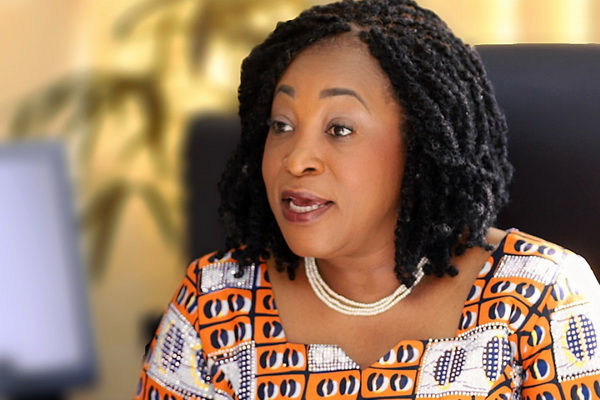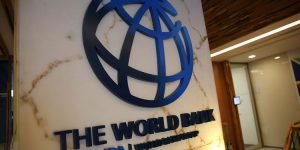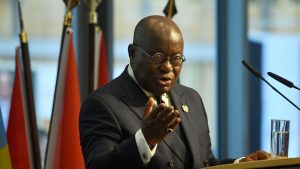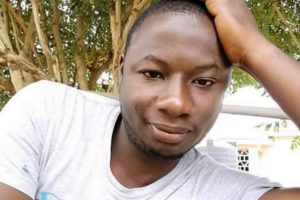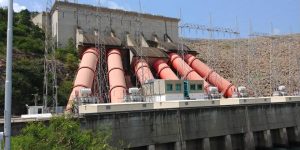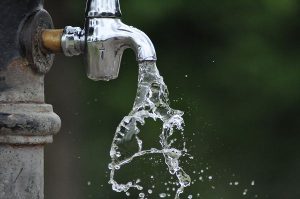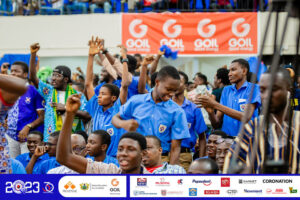Madam Shirley Ayorkor Botchwey, Minister of Foreign Affairs and Regional Integration, has lauded the European Union’s (EU) longstanding efforts to secure the Gulf of Guinea (GoG).
The Minister gave the commendation in Accra when she met with Madam Diana Acconcia, Head of EU Delegation to Ghana, and other EU Heads of Mission accredited to Ghana, to discuss the EU’s Coordinated Maritime Presence (CMP) as well as other efforts by European countries to eradicate maritime insecurity in the GoG.
Madam Ayorkor Botchwey said the GoG connects maritime traffic of multiple continents with its export and import potential, making it an indispensable part of global trade.
She added that the discovery of offshore oil and gas deposits had increased the geostrategic importance of the GoG.
She indicated, however, that the blue economy potential of the GoG was being undermined by a plethora of illicit activities and insecurities in the maritime domain and observed further that for over a decade, piracy and other maritime crimes such as Illegal, Unreported and Unregulated (IUU) fishing had been on the rise and were posing serious threats to the safety and security of shipping.
Madam Ayorkor Botchwey said Ghana was actively engaged in regional efforts to ensure maritime security through the Multinational Maritime Coordination Centre (MMCC) (Ghana falls within the maritime Zone ‘F’ of this Centre/architecture whilst other Member States fall within zones ranging from ‘A to G’), which was established by ECOWAS with the aim of developing a regional framework to counter piracy and armed robbery at sea.
She said the MMCC Zone F, within which Ghana fell, undertook activities such as the monitoring of ports, fishing activities, oil and gas exploration and critical maritime installations (such as the West African Gas Pipeline).
The Minister said the Zone F conducts profiling of vessels of interest and vessels vulnerable to attack, and shares information with stakeholders and partners at the national, regional and international levels.
She informed that Ghana welcomed initiatives by international partners such as the EU’s CMP to support GoG countries in their efforts to safeguard the safety and security of the maritime area.
She pointed to the existence of regional and sub-regional frameworks in place at the level of the African Union (AU) and Regional Economic Communities (RECs) to tackle maritime insecurity in the GoG and urged the EU and European countries to help in strengthening them to be more efficient.
Madam Ayorkor Botchwey reiterated the need to hold broad consultations with key Ghanaian stakeholders in maritime security such as the Ghana Navy and Ghana Maritime Authority to receive more technical and informed inputs specific to Ghana’s maritime security needs.
She urged the EU to coordinate with GoG countries within the ambit of regional/multilateral organizations such as the Gulf of Guinea Commission (GGC), ECOWAS and ECCAS.
She emphasized the need for international partners patrolling the territorial waters of GoG Member States to do so with utmost respect for their sovereignty and territorial integrity.
The Ministers requested the EU’s provision of a document on the detailed implementation strategy of the CMP for Ghana’s information.
Madam Ayorkor Botchwey expressed the hope that the CMP initiative would be successful in stemming the tide of maritime insecurity in the GoG to enhance its blue economy potential and improve the socioeconomic conditions of the relevant local communities.
Madam Acconcia, the EU Head of Delegation, said under the CMP concept, the GoG had been chosen as the pilot phase and that the mechanism aimed to increase the EU’s capacity as a reliable partner and maritime security provider.

